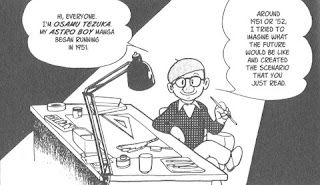When I think of the Italian novel I admit that this kind of book was not my first thought (though it really should have). Why not novels by Italians? For the longest time it was The Mysteries of Uldolfo by Ann Radcliffe which I had very often thought of as the Italian novel (which is really silly when you think about it... she wasn't even Italian, and worse, I haven't even read it yet!). I blame it on Jane Austen's Northanger Abbey.
The year before last I focused on Italo Calvino's novels, which where different, fascinating, often weird and sometimes a challenge to read, but I never thought of him as Italian (very much). This on the other hand is Italian! The real deal. These two books My Brilliant Friend and The Story of a New Name are only half of what is known as the Neapolitan Novels by Elena Ferrante. I have decided to talk about them two at a time (because talking about each one would eventually be tedious).
I am listening to the audiobooks, narrated by Hilary Huber, who has become very familiar to me (after listening to over thirty hours so far), and I appreciate her narrative style. Her pronunciation of names and her neutral voice overall, is pleasant to listen to.
My ultimate aim is to read the last of this series The Story of a Lost Child which has been listed as a must read by 1001 Books You Must Read Before You Die 2018 edition. It is a long route to take to get to the eventual goal, but I don't mind. The first two books were riveting. They were also suspsenseful (a Kazuo Ishiguro type of suspense), I am always waiting for the other shoe to drop, and when it does, it is always spectacular (good or bad).
Essentially these novels are the story of two girls who began by growing up in the same neighbourhood. Their relationship is a confusing one. It wobbles from competitive, to jealous, to toxic to affectionate and back again. It is also, in my opinion, perverse. Perverse because neither of the girls can leave each other alone for very long. So after reading two novels about them I have become less inclined to root for the narrator of the story, Lenu but at the same time I really dislike the other girl, Lina. I have to often remind myself, after feeling disgusted at some nasty thing that has happened between the girls, is that they are girls. And in the next novel, I have to remember, they are teenagers.
I'm not surprised. It is stated at the very beginning when initial description of the neighbourhood was being set, that women of the neighbourhood were the most vicious and spiteful.

Novel number two doubles down on the nastiness and again, Lina is just despicable. But I don't lose sight of the fact that she is also a victim of circumstance. Both young women are brilliant and thirsty for knowledge, but it is only Lenu who gets the opportunity to commence with a greater education (this story is staged in the late fifty's). Lina is left behind, and lashes out in frustration at Lenu (though Lenu sometimes likes to rub it in). Both girls are equal in that they are both poor, and both have parents who are ignorant, but where things change is that Lenu's parents eventually agree to further education whilst, Lina's outright refuse. This is where I feel the greatest connections to the characters, that passion for literature, for scholastic achievement, also, the frustration of having parents who do not encourage or understand this intellectual need.
But we differ in that when I recognize a toxic relationship between me and someone else, I distance myself from the toxic one.
My over-all feeling about these first two novels is that they are saga-like, operatic, I could imagine them being performed. Mostly I am reminded of a friend of my husband. He wanted to show me what his dog did when she sniffed a cotton ball with nail polish remover on it. The poor pup would go in for a big sniff, then commence to have a stupendously large sneezing fit,
but then, she would go back for another sniff!













